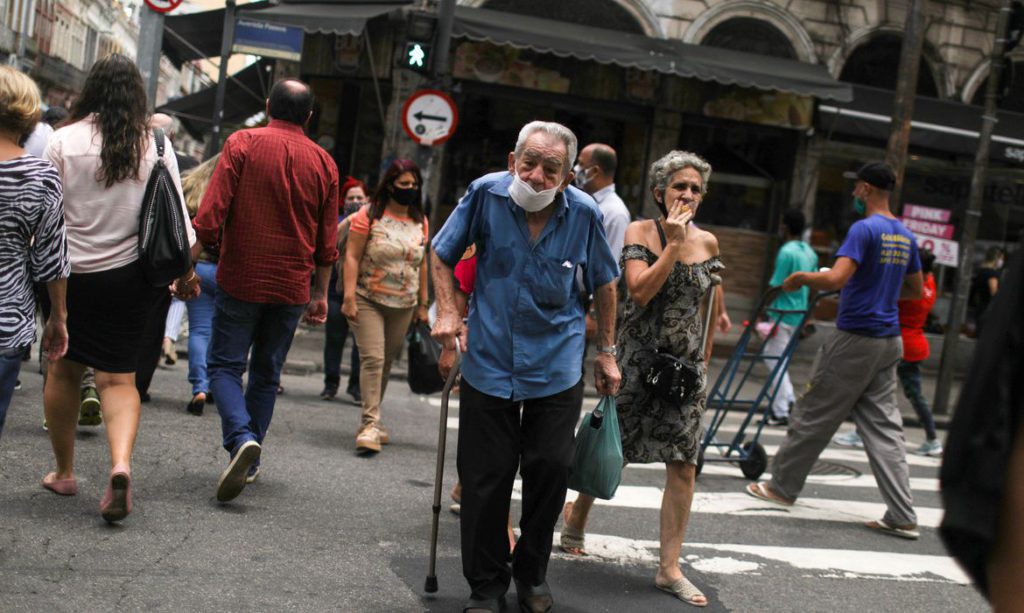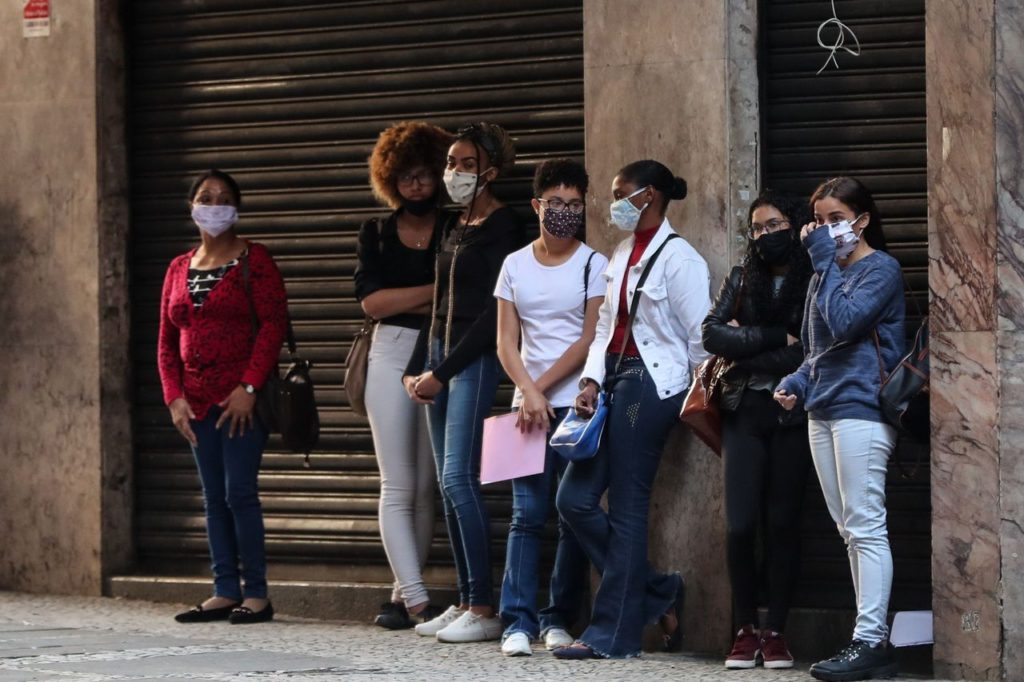According to IBGE, the index reaches 51.7%.
More than half of the Brazilians feel unsafe walking alone at night on the streets. According to data from the Continuous National Household Sample Survey (Pnad), conducted in the last quarter of 2021 and released today (7) by the Brazilian Institute of Geography and Statistics (IBGE), the percentage of people who feel unsafe or very unsafe to go out on the streets after sunset reaches 51.7%.
Also read: Brazilian economy slows in third quarter
The greatest feeling of insecurity was observed in the North Region, where the percentage reaches 60.4%. In the South, the feeling is lower, reaching 38.1% of the people. In the other regions, the percentages are Northeast (54.4%), Southeast (53.1%) and Midwest (50.4%).
“It is a period associated with lower flow of people, emptier streets, less illuminated. This is a factor that generates fear and insecurity,” says IBGE researcher Alessandra Brito.

The percentage of Brazilians who are insecure during the daytime is lower: 20.3% of Brazilians are afraid to walk alone at this time of the day. On average, the feeling of insecurity at any time of day reaches 28.8% of Brazilians.
The survey also asked the interviewees if they felt safe inside and outside their homes. Those who feel safe inside their homes reach 89.5%. Those who feel safe in their neighborhood drop to 72.1%, and those who say they feel safe moving around the city as a whole plummet to 54.6%.
Read also: Brazil’s economic growth revised up to 2.8%: central bank
When analyzing urban and rural areas, the percentage of feeling safe indoors is almost the same (89.5% for the city and 89.6% for the countryside). But when the feeling is analyzed in relation to the neighborhood and the city, there are divergences.
In the urban area, the people who say they feel safe in their neighborhood are 70.2%, and in the city as a whole, 52.8%. In the rural zone, the feeling of safety in the neighborhood reaches 84.3% of the people, while those who feel safe in the city as a whole are 66.5%.

Women, in general, feel more insecure than men. Those who feel safe at home are 88.6%, in the neighborhood, 69.5%, and in the city, 51.6%. On the other hand, the percentages for men are 90.5%, 75% and 58%, respectively.
The victims of robberies and thefts also show less security. While among people who have not been robbed in the last year, 71.6% feel safe, among robbery victims the proportion of those who feel safe drops to 37.6%.
Also read: Chinese medicine from Macau enters the Brazilian market
The greatest victimization risks perceived by Brazilians are being mugged or having their cars, motorcycles or bicycles stolen. According to the survey, 40% of the interviewees perceive a high or medium risk of being mugged on the streets, 38.1% of being mugged in public transportation, 37.2% of having their car, motorcycle or bicycle stolen and 29.5% of being robbed inside their homes.

Men vs. women
Comparing men and women, male respondents are more afraid (13.5%) than women (8.5%) of being victims of police violence. In addition, 13.4% of men are afraid of being mistaken for criminals, while among women this fear only reaches 6.9%.
Read also: New cycle or return to the past in Brazil?
Fear of being a victim of sexual assault affects more women (20.2%) than men (5.7%). “In general, women have higher and medium risk perception for almost everything [being mugged, having their house burgled, being a victim of physical violence, being murdered, being in the middle of a shooting, etc], but the most glaring difference is being a victim of sexual assault,” explains Alessandra.

Whites x Blacks
The research also shows that blacks are more afraid of being victims of the police, of being murdered or being shot than whites. In relation to police violence, 12.8% of blacks are afraid of being victims, while among whites this fear reaches 8.5%. The fear of being mistaken for a bandit by the police affects 12.5% of blacks and 6.8% of whites.
Also read: Brazil: Lula wants to resume population disarmament policy
Blacks who perceive medium or high risk for stray bullets are 18.3%, for being in the middle of a shooting, 18%, and for being murdered, 14%. For whites, the percentages are 14.2%, 13.9% and 11.5%, respectively.
The risk of being kidnapped, on the other hand, is perceived more by whites (13%) than by blacks (10.6%).
Change of habits
The fear of violence also makes many Brazilians change their habits. According to the survey, more than half of the women avoid attitudes like arriving or leaving home too late (63.6%), going to ATMs on the street at night (57.2%), using a cell phone in public places (57.6%), going to places with few people around (56.6%) and talking to unknown people in public (55.2%).

Read also: Two killed, firefighter missing in flood in southern Brazil
Men also seek to avoid the same things as women, but in smaller proportion: arriving or leaving home too late (49.4%), going to street ATMs at night (48.9%), using a cell phone in public places (44.7%), going to places with few people circulating (42.8%), and talking to unknown people in public (42.8%).
About the role of information in the feeling of insecurity, IBGE showed that 77% of people who do not inform themselves about violence feel safe, against 73.4% of those who are informed by social networks, 70.7% by radio and TV, 70.2% by conversations with relatives and friends, 69.1% by printed newspapers or magazines, and 68.4% by newspapers and magazines on the Internet.

Read also: Technology: Brazilian Institute and Taiwan University Study 6G
Most Brazilians also seek to make their home safer. According to the survey, 68% of households in the country have some kind of device or professional for security. In the South, the percentage reaches 76.2%, while in the Northeast the share is 60.8%.
Locks, latches or reinforced locks account for 41% of the protection mechanisms, followed by high walls and/or walls with glass shards and barbed wire (35.5%), dogs or other protection animals (29%), and cameras or alarms (17.1%).



